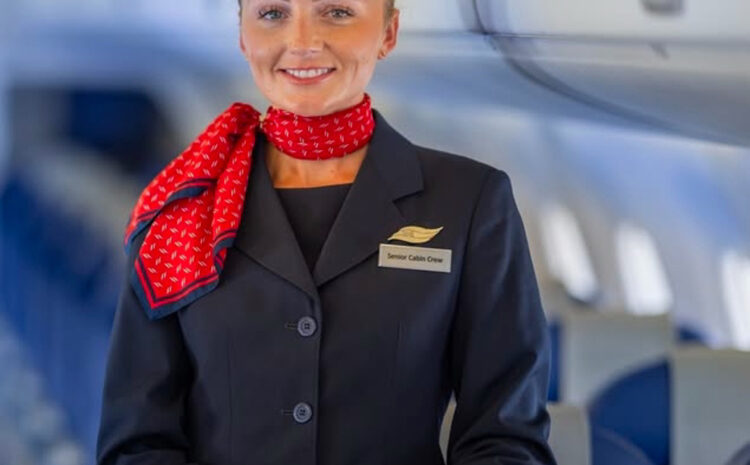
Flight Attendants
Flight attendants provide routine services and respond to emergencies to ensure the safety and comfort of airline passengers.
Our flight attendants have variable work schedules, including evenings, weekends, and holidays, because we operate every day and we offer overnight flights and our flight attendants typically receive on-the-job training and must be certified by the Federal Aviation Administration.
Responsibilities of Flight Attendants:
- Participate in preflight briefings with the pilots, to discuss cabin conditions and flight details
- Conduct preflight inspections of emergency equipment
- Demonstrate the use of safety equipment and emergency equipment
- Ensure that passengers have their seat belts fastened when required and that all other safety requirements are observed
- Serve and sell beverages, meals, or snacks
- Take care of passengers’ needs, particularly those with special needs
- Reassure passengers during the flight, such as when the aircraft hits turbulence
- Administer and coordinate emergency medical care, as needed
- Provide direction to passengers, including how to evacuate the aircraft in an emergency
Skills required:
- Attentiveness – In performing your duties as a Flight Attendant, you must be aware of passengers’ needs to ensure a pleasant travel experience.
- Communication – you will work with passengers whose first language will not be English. It would help if you spoke plainly, and distinctly to get your point across.
- Customer-service skills – Flight attendants should have poise, tact, and resourcefulness to handle stressful situations and meet passengers’ needs. You will be required to ease tensions, diffuse potentially heated situations, and give passengers assurances.
- Decision-making skills – Flight attendants must be able to act decisively in emergencies. You should be able to quickly gauge a situation and implement the safest course of action while trying not to disrupt the rest of the aircraft.
- Stamina – Your duties as Flight attendants may involve lifting baggage, standing, and walking for extended periods. During your training, recruiters will often need to ensure your height, weight, and vision (correctable to at least 20/40) are in line with the airline’s requirements. Flight attendants will also have to pass a medical evaluation.
- Empathy – It is essential to be sensitive to the needs, feelings, and requests of passengers and your fellow cabin crew members. If you notice that a colleague is struggling, you should understand and help build trust and facilitate a better and healthier working environment. You may come across passengers who have various problems like learning disabilities, embarrassing medical mishaps, and so on. You should empathize and see to that passenger’s needs tactfully and respectfully.
- Adaptability and Flexibility – Although you can receive your scheduled flights a few weeks or days in advance, your schedule must be kept free as you may also be required to be on standby and available to fly at short notice to fill in for a co-worker or respond to an emergency.
- Cultural Awareness – You will most likely be working with a diverse cabin crew and attend to a diverse range of passengers, including people from different cultural backgrounds, people of another race, religious beliefs, etc. You must be conscious not to offend, insult, or disregard a person or their beliefs.
Educational Requirements:
A high school diploma is typically required. But we prefer to hire applicants who have taken some college courses.
Those who work on international flights may have to be fluent in a foreign language and enrolled in flight attendant academies.
